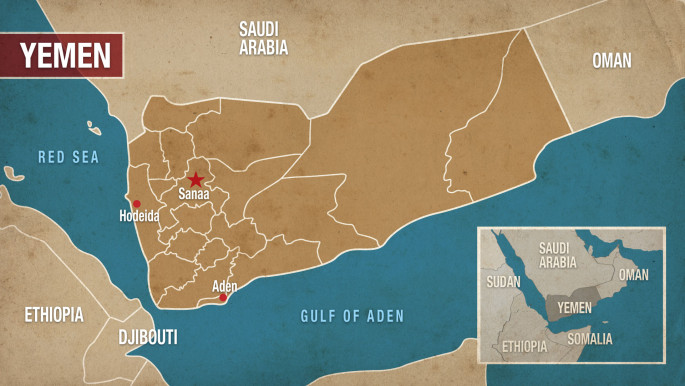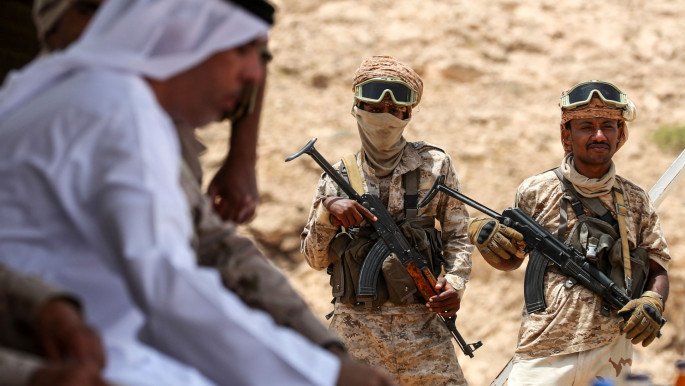Hodeida civilians despair as Yemen's ceasefire fails
"Countless lives are still heavily impacted by the ongoing fighting, despite promises that the fighting would be brought to a conclusion," Manal, a Yemeni activist in Hodeida, told The New Arab.
On June 12, the Saudi-led coalition backing President Abedrabbo Mansour Hadi's government forces launched a military offensive to capture Houthi-held Hodeida - an operation widely criticised among the humanitarian community for risking the worsening of Yemen's famine, with millions of civilians in the city already starving or in critical conditions.
Fighting continued to wane and erupt again until December, when delegates representing the Houthis and the Hadi government met in Stockholm for the first time in two years for peace talks, signalling a possible step towards ending the conflict. As part of the talks, a ceasefire was due to be established on January 7.
While fighting then initially decreased, the conflict erupted again with both sides frequently breaching the ceasefire, which is now on the verge of failure.
As a result, the humanitarian situation has become even more dire. Citizens in Hodeida are forced to dig through rubbish tips to find scraps of food, with young children searching for leftovers, showing extreme hunger in the city.
 |
|
"Citizens are becoming very desperate for a solution, even though there was a glimmer of optimism at first. People completely distrust the agreement in Sweden to bring about a ceasefire and a peaceful solution, as there is clearly no peace achieved between both sides, and believe that both sides are responsible for a lack of peace," Manal added.
"It has taken a huge toll on people's lives and their mental wellbeing. Every day people are disturbed by hearing endless sounds of heavy, light and medium weapon fire, and citizens are dying."
 |
It has taken a huge toll on people's lives and their mental wellbeing. Everyday people are disturbed by hearing endless sounds of heavy, light and medium weapon fire, and citizens are dying |  |
Both sides have been accused by the other of consistently violating the ceasefire.
A Houthi report claims that throughout January the Saudi-led coalition violated the agreement 3,189 times, through a combination of missiles, artillery shells, open fire with heavy weapons, and Saudi airstrikes. Meanwhile, the coalition and the Hadi government accuse the Houthis of breaching the ceasefire more than 700 times in the same period.
Read also: Peace in Yemen depends on a solution for the south
"It seems the fighting shows no sign of ending, and this enables the Houthis, who still control most of the city, to target any citizen they suspect of collaborating with the Hadi government or the coalition," Abdullah, a Hodeida resident, told The New Arab.
"They are attacking on all fronts too and this makes it impossible to implement the truce. They need to retreat from all of Hodeida," he added.
 |
|
| Read also: Saudis, Emiratis 'arming al-Qaeda in Yemen with US weapons' |
The coalition still looks set to continue violence too, with the UAE Minister of Foreign Affairs, Anwar al-Gargash, saying the coalition was "prepared to use more calibrated force to prod the Houthi compliance with the Stockholm agreement", despite claiming a commitment to the ceasefire after several months of military assault.
"The resignation of General Patrick Cammaert is sufficient proof of the failure of the Stockholm process despite international pressure to make it a success," Nabil al-Bokairi, a Yemeni researcher, told The New Arab.
Cammaert, who had been leading the UN monitoring mission overseeing the ceasefire's implementation, had struggled to persuade the warring factions to attend a regional coordination committee and ease disagreements over the details of the Stockholm peace talks, and recently stepped down.
The wording of the Stockholm Agreement itself is vague, leaving a lack of clarity that still allows both sides to haggle over the details, arguably a cause of the ceasefire's breakdown.
The UN had to resort to holding peace talks on a boat off the city's coast on Sunday, as a neutral location acceptable to both sides. The meeting suggested that there is still hope for a solution.
"I do not think that this current truce will succeed as it stands, as the focus remains on the status of the port of Hodeida in isolation from the causes of war, and the peace talks fail to address the deeper attitudes behind the Yemen conflict," added al-Bokairi.
Martin Griffiths, UN ambassador to Yemen and supervisor of the peace agreement, has extended the timeline for the ceasefire, claiming that the initial deadline was too ambitious.
 |
When ambulances do reach citizens, they are put at risk from fire and once leaving the city still face the treacherous mountain roads towards better-equipped medical facilities |  |
The prisoner exchange in the Stockholm Agreement, calling for the release of thousands of prisoners on both sides, has also stagnated - with the Red Cross saying it was "hanging in the balance" due to "insignificant trust" on both sides.
Aid supplies are limited, with hospitals only able to perform basic operations. Ambulances often struggle to reach the city and provide aid to those injured in the clashes, with many areas completely cut-off because of the conflict.
When ambulances do reach citizens, they are put at risk from fire and once leaving the city still face the treacherous mountain roads towards better-equipped medical facilities.
Furthermore, aid workers cannot operate within the city or deliver aid to impoverished citizens. Electricity is also scarce and only commercially available. There is often no internet within the city, causing obstacles for outside communication and accurate knowledge about the situation.
Official estimates for the four-year Yemen conflict report more than 10,000 dead and injured, although aid groups say the figure is at least several times higher. It is difficult to know the exact number of casualties. More than 85,000 children have died from starvation, and around 14 million people are on the brink of famine.





 Follow the Middle East's top stories in English at The New Arab on Google News
Follow the Middle East's top stories in English at The New Arab on Google News


